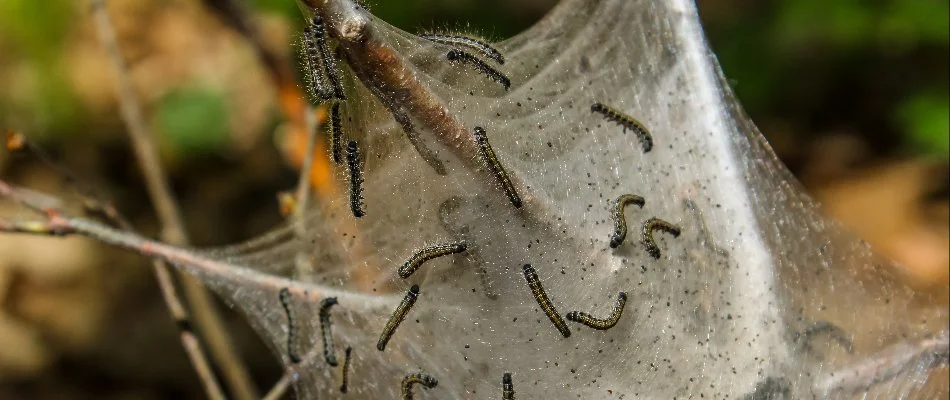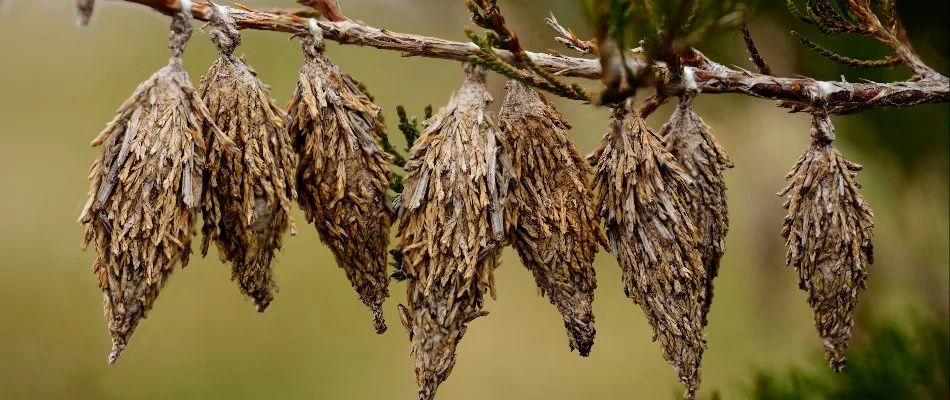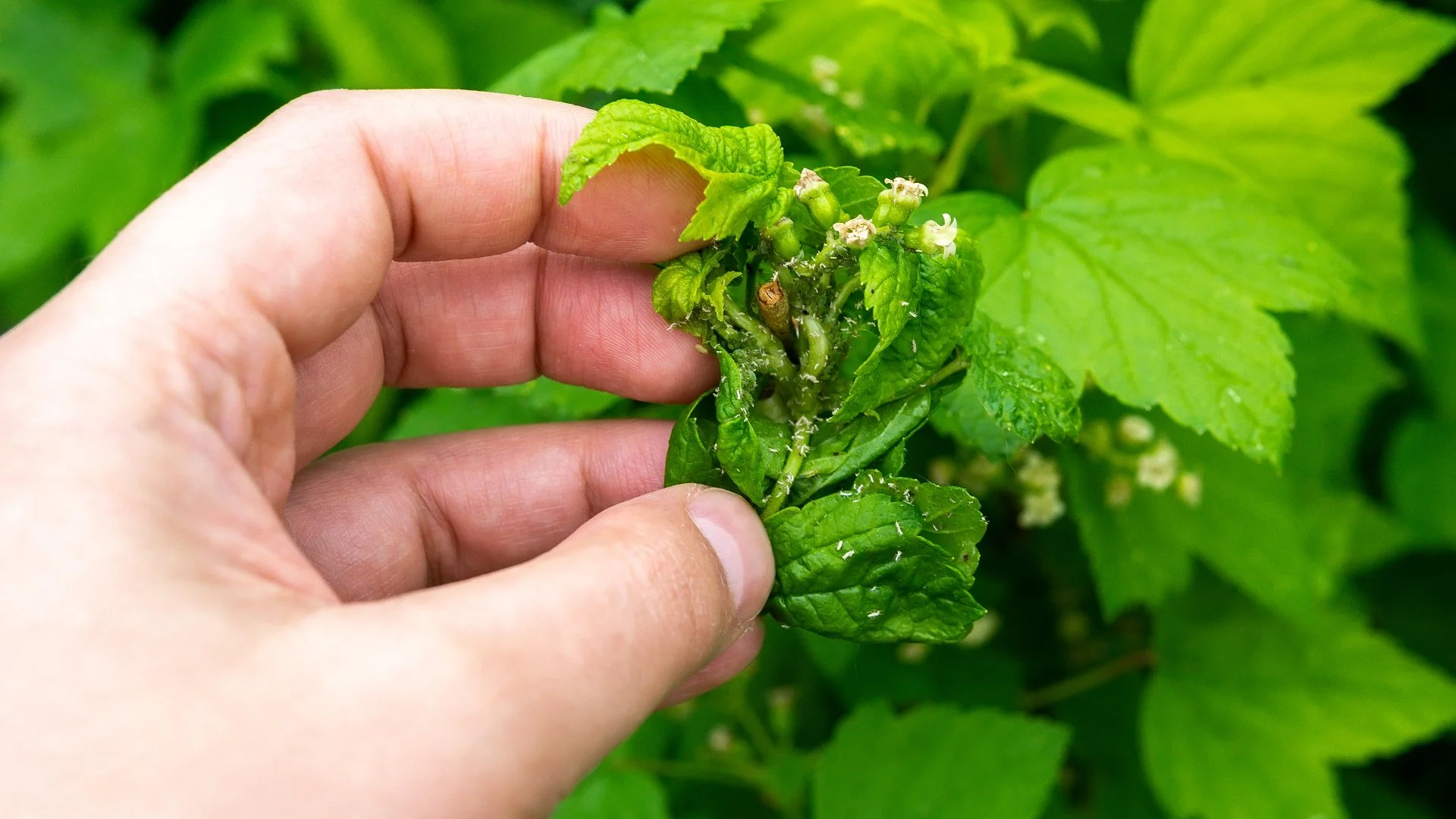An important part of maintaining the health of your plants is protecting them from pests. Unfortunately, there are various plant-damaging insects here in Texas that can infest your trees and shrubs, like webworms, aphids, and bagworms. Webworms are leaf-feeding pests that spin webs on the leaves and branches of your plants to protect themselves, while aphids are sap-sucking insects that can cause foliage discoloration. Bagworms are also pests to watch out for. They feed on the leaves and needles of plants and build bags to hide themselves while they eat. Fortunately, you can take advantage of curative treatments to eliminate these pests and keep them from causing more damage to your trees and shrubs!
1. Webworms

Webworms are notorious insects that can defoliate your plants in Texas. These pests are the larvae form of moths and can grow up to an inch long. Their bodies have orange and black spots on the back where long tufts of hair emerge. Webworms become most active around late summer to early fall, which is when they start causing destruction to your plants.
Webworms feed on the leaves of plants. Aside from their voracious appetite, these pests will damage your plants by spinning webs around the leaves and branches of your trees or shrubs as they feed. The silken webs that they spin while they feed protect them from predators and help them hunker down when things get windy. As soon as you notice these webs on your plants, the best thing you can do to help them is to schedule professional curative treatments. These treatments will stop the webworms in their tracks and keep them from wreaking more havoc on your trees and shrubs.
2. Aphids

Aphids are another plant-damaging insect that you have to watch out for in Texas. These small, pear-shaped pests have long legs and two tail pipes or cornicles found at the end of their abdomen, which they use to emit secretions that help them defend themselves from predators. They also have slender mouthparts that they use to suck sap from the leaves and stems. Large populations of aphids can severely damage the health of your plants, causing the leaves to turn yellow and inhibiting the growth of shoots. Some aphid species can also use their mouthparts to inject a toxin into the plants which results in curling and yellowing leaves.
To keep aphids from destroying your plants, consider signing up for curative insect control treatments. Always hire professionals to treat your trees and shrubs because they will use the right product and administer it the proper way to effectively combat aphids and keep them from destroying your plants.
After dealing with aphids, you can schedule a tree and shrub fertilization treatment to help your plants recover from any damage they may have sustained.
3. Bagworms

Bagworms are the third insect that you need to be on the lookout for in Texas. Young bagworms are approximately about 2 millimeters long with a glossy black body while mature larvae have a dull and grayish color with dark splotches near their heads. They cause damage by feeding on the needles and leaves of your plants. Bagworms often go undetected because they construct large bags made from leaves, stems, and their silk that are easily mistaken to be part of the plant, allowing bagworms to continue feeding on the plant without being seen. Fortunately, you can take advantage of professional curative treatments to eliminate any bagworms on your plants.
Call us today to sign up for our tree and shrub insect control treatments!
Here at Weedex Lawn Care, we offer tree and shrub insect control treatments to residential properties in Dallas, Fort Worth, Arlington, and nearby areas in Texas. This service involves 4 treatments per year, so you can rest assured that your plants are consistently protected from insects like webworms, aphids, bagworms, and more. Give us a call today at (972) 727-9207 to sign up for this service.



Comments (0)
Thanks for your comment!
Thanks for your feedback! Your comments have been successfully submitted! Please note, all comments require admin approval prior to display.
Error submitting comment!
There is a problem with your comment, please see below and try again.